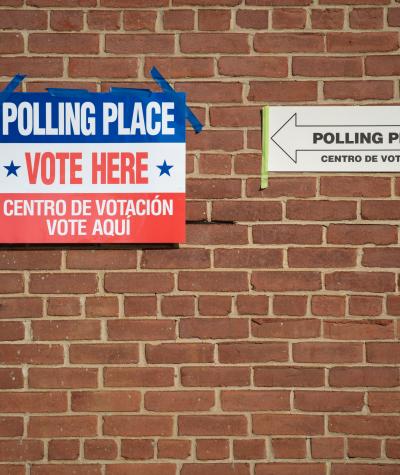One thing all Americans can agree upon — no matter their political persuasion — is that our elections should be safe and secure.
For the past decade, it has been the mission of the Electronic Registration Information Center, commonly known as ERIC, to ensure just that.
The non-profit, bipartisan consortium — voluntarily joined by 32 states through the end of 2022 — has been widely respected across the political spectrum for its ability to help election officials improve the accuracy of state voter rolls and register more eligible Americans to vote.
Using voter registration and motor vehicle department data provided by its member states through secure channels, ERIC allows states to accurately update their voter rolls when voters move between states, remove ineligible voters, investigate potential illegal voting or provide voter registration information to individuals who may be eligible to vote.
These are all laudable, uncontroversial goals that have made our voter registration rolls more accurate and our elections more accessible and secure.
But now, self-interested politicians — many of whom claim to want stronger election security — have led a politically-motivated, conspiracy theory-laden effort to leave ERIC.
The stated reasons for leaving ERIC are varied, steeped in false narratives about election security and fueled by disinformation intended to sow distrust in our American democracy.
Ten states have already withdrawn from ERIC this year, and multiple others have threatened to do the same. At a time when Americans’ trust in elections is already perilously low, these misguided decisions threaten to further undermine confidence in our elections.
Some officials from states who have exited ERIC this year claim to want to create their own interstate data-sharing system, but such efforts face overwhelming obstacles.
For one, a data-sharing system that only uses rudimentary markers for comparison — like first name, last name, and birthday — threatens to produce a high rate of false positives, which could kick otherwise eligible voters off the voter rolls.
To ensure accuracy, then, a useful data-sharing system needs to include state motor vehicle records, which may also provide full birthdate, driver’s license numbers and the last four digits of social security numbers.
Given the sensitivity of this information, such a data-sharing system needs to be accompanied by stringent security protocols — which ERIC currently has, but any new system may find it difficult or expensive to recreate.
Additionally, a system like ERIC works at scale. In other words, the more states that join such a compact, the more states can share data with each other, and the more accurate voter rolls can be across the country. Any new compact will have to start largely from scratch, making such an effort inherently less effective at accomplishing its stated goals.
These reasons are why numerous other ERIC alternatives failed to succeed — and why efforts to discredit ERIC are misguided. In short, there is no viable alternative to ERIC.
Election officials from across the political spectrum agree, and have sung ERIC’s praises.
Brad Raffensperger, Georgia’s Republican secretary of state, called ERIC “an important tool for election administrators.”
Shenna Bellows, Maine’s Democratic secretary of state, said ERIC gives the state “the ability to effectively clean our voter rolls and fight voter fraud.”
Paul Pate, Iowa’s Republican secretary of state, wrote in February 2023 that ERIC is an “effective tool for ensuring the integrity of Iowa’s voter rolls” — before leading the state’s effort to pull out of the group not even a month later.
Similarly, Frank LaRose, Ohio’s Republican secretary of state, called ERIC “one of the best fraud-fighting tools that we have” — and then immediately pushed the state to withdraw.
This last case underscores a key point: officials who back the myth that voter fraud is a large issue are abandoning the only organization with the scope, resources and data able to detect and prevent it.
These efforts are not supported by facts or evidence and instead are the result of concerted lobbying by election deniers and partisan activist groups who seek to dismantle this critical piece of our election infrastructure.
The exodus from ERIC threatens to make our democracy less secure, eroding confidence as we head into a crucial election year, which ultimately harms voters’ ability to make their voices heard.

